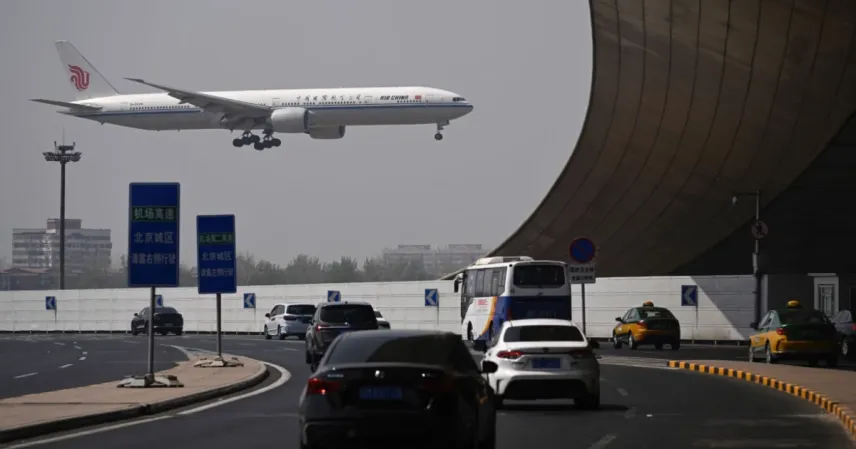In a significant escalation of the ongoing trade dispute between the United States and China, the Chinese government has instructed its domestic airlines to suspend all new orders of Boeing aircraft and to seek official approval before accepting deliveries of previously purchased jets. This directive comes in response to the U.S. imposing tariffs as high as 145% on Chinese goods, prompting China to retaliate with its own set of tariffs and trade restrictions.
📉 Impact on Boeing
Boeing, one of America's largest exporters, is poised to feel the immediate effects of China's decision. The aerospace giant had delivered 18 aircraft to Chinese carriers earlier this year, with plans for additional deliveries in the pipeline. However, the new restrictions cast uncertainty over these plans, potentially affecting Boeing's revenue and production schedules.
Financial markets reacted swiftly to the news, with Boeing's shares experiencing a decline. Analysts estimate that the suspension of deliveries to China could result in a significant financial setback for the company, given China's substantial role in Boeing's international sales strategy.
🌐 Broader Trade Implications
The halt in Boeing jet orders is part of a broader pattern of escalating trade tensions between the two economic powerhouses. In addition to targeting the aerospace sector, China has also imposed restrictions on the import of U.S.-made aircraft parts and equipment, further complicating the operational landscape for American companies operating in China.
These developments underscore the fragility of international trade relationships and the potential for geopolitical disputes to disrupt global supply chains. Industries ranging from aerospace to technology are closely monitoring the situation, as prolonged tensions could lead to long-term shifts in trade patterns and partnerships.
✈️ Looking Ahead
China just halted orders of all Boeing planes.
— No Lie with Brian Tyler Cohen (@NoLieWithBTC) April 15, 2025
This is a major strategic failure for Trump. pic.twitter.com/8TPMfrFZEP
As the trade dispute continues to unfold, stakeholders across various sectors are assessing the implications of China's latest move. For Boeing, the immediate concern lies in managing the financial and logistical challenges posed by the suspension of orders from one of its key markets. For the broader business community, the situation serves as a stark reminder of the complexities inherent in global trade and the importance of navigating geopolitical risks with strategic foresight.










